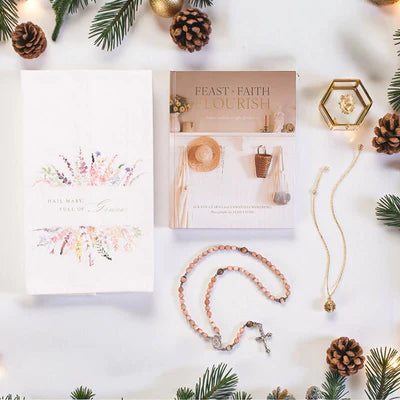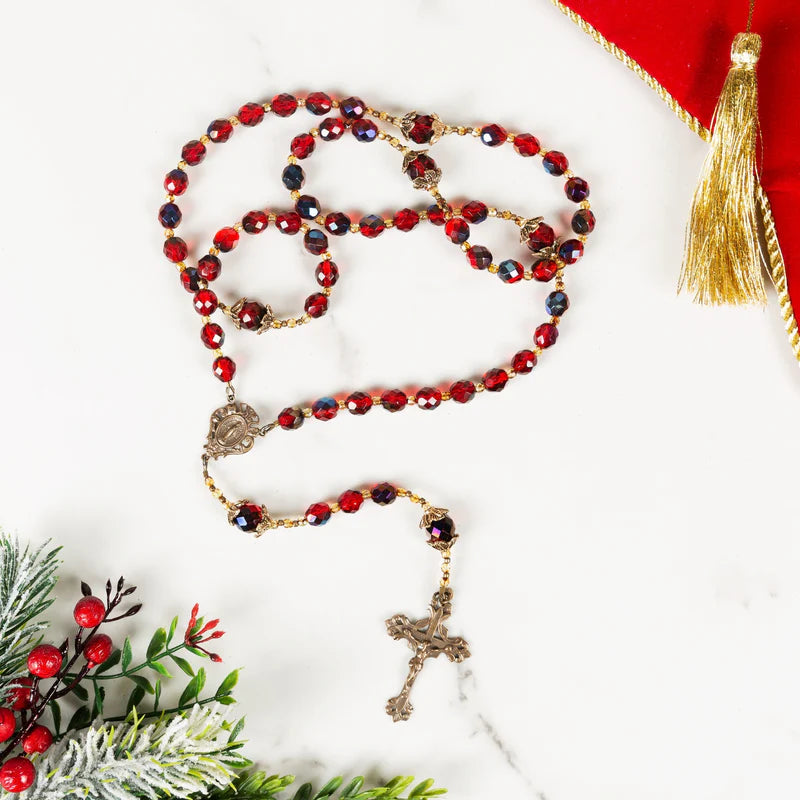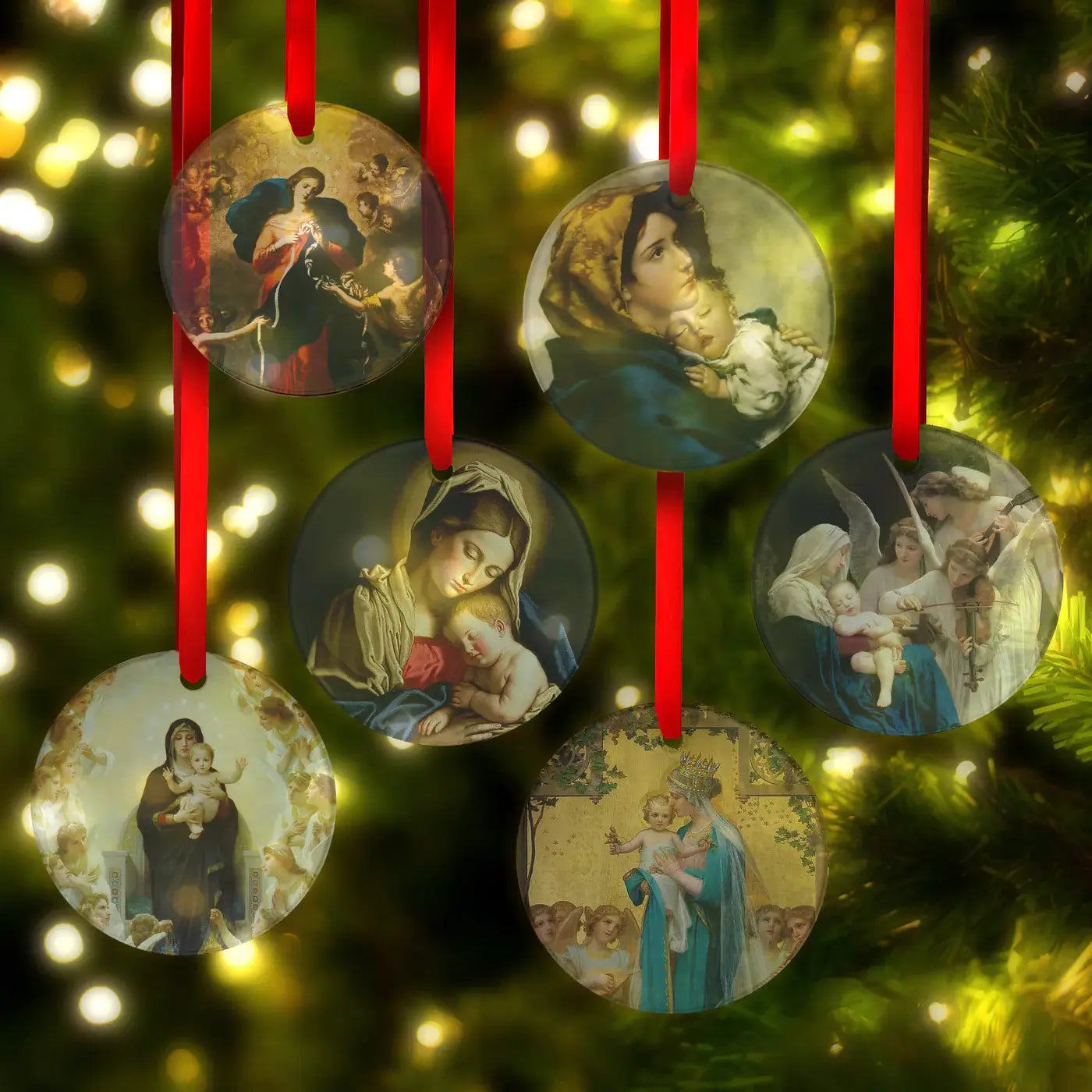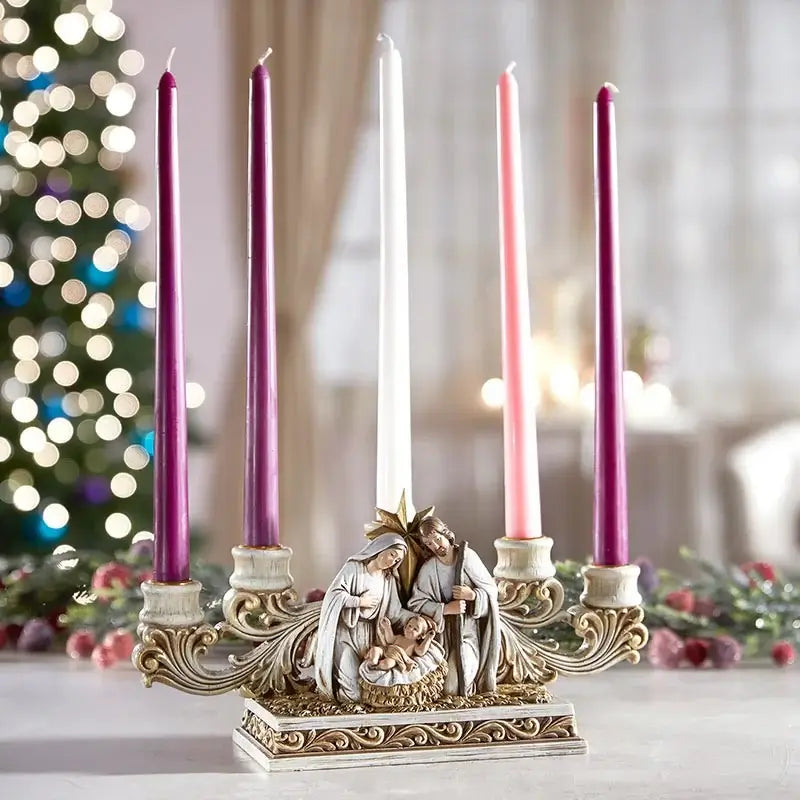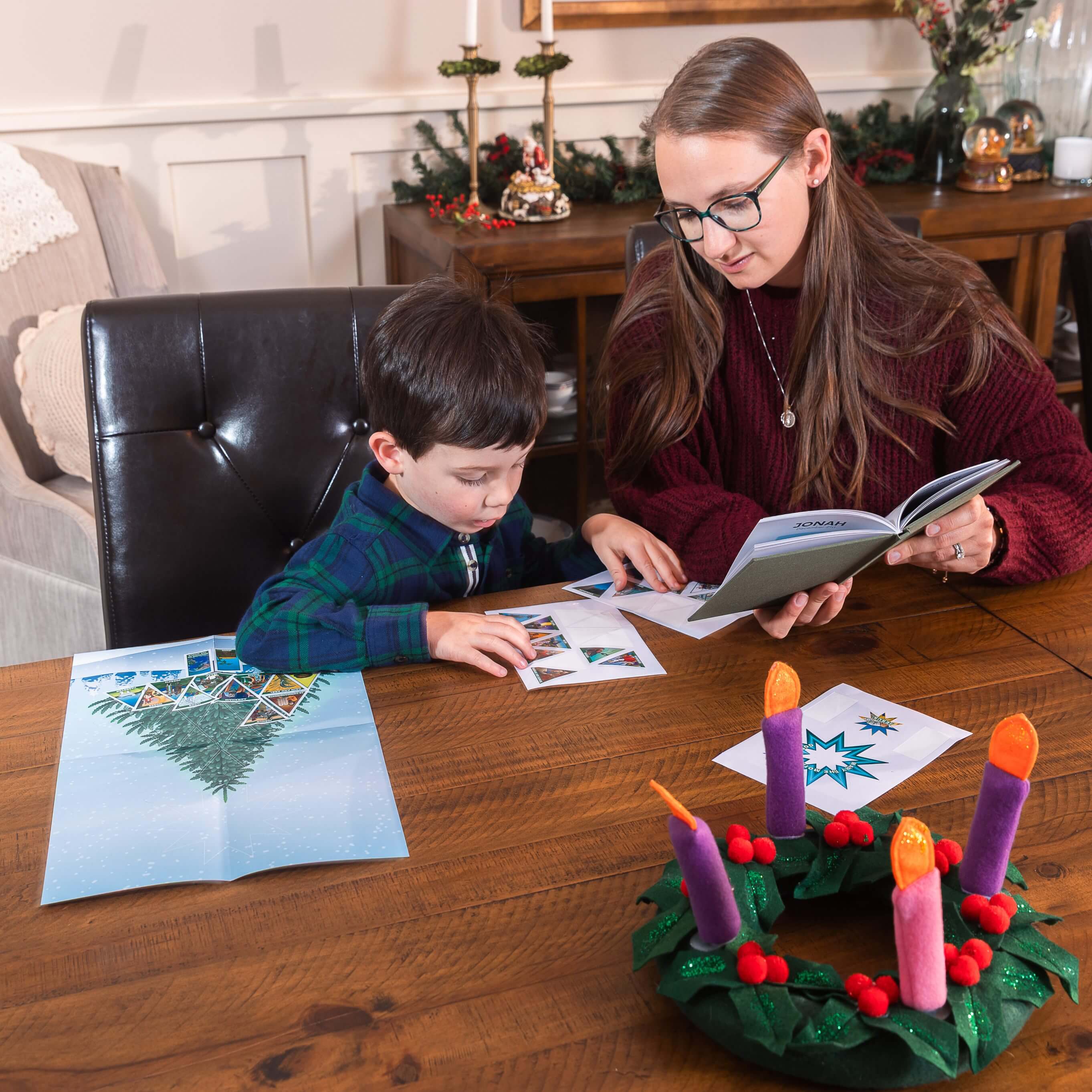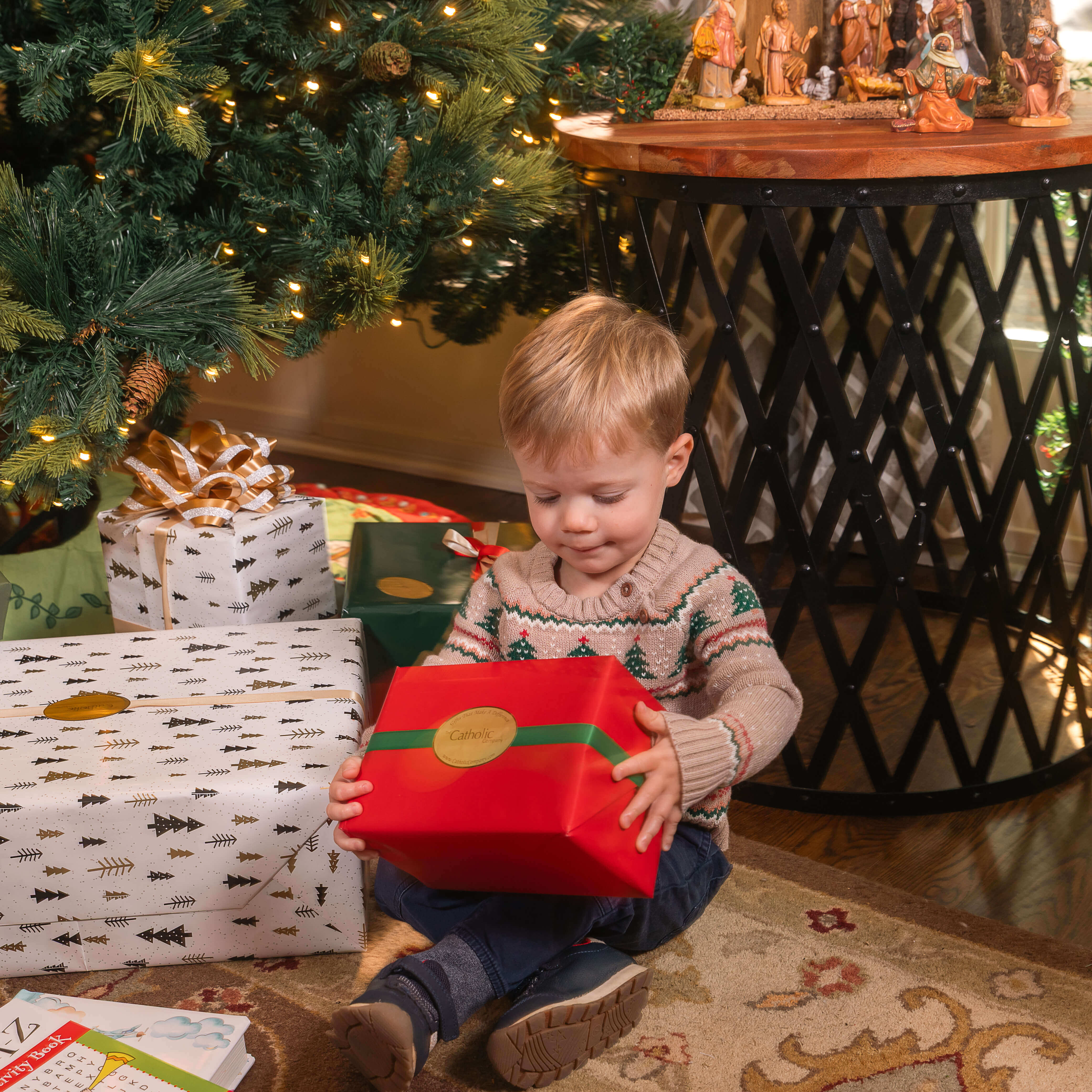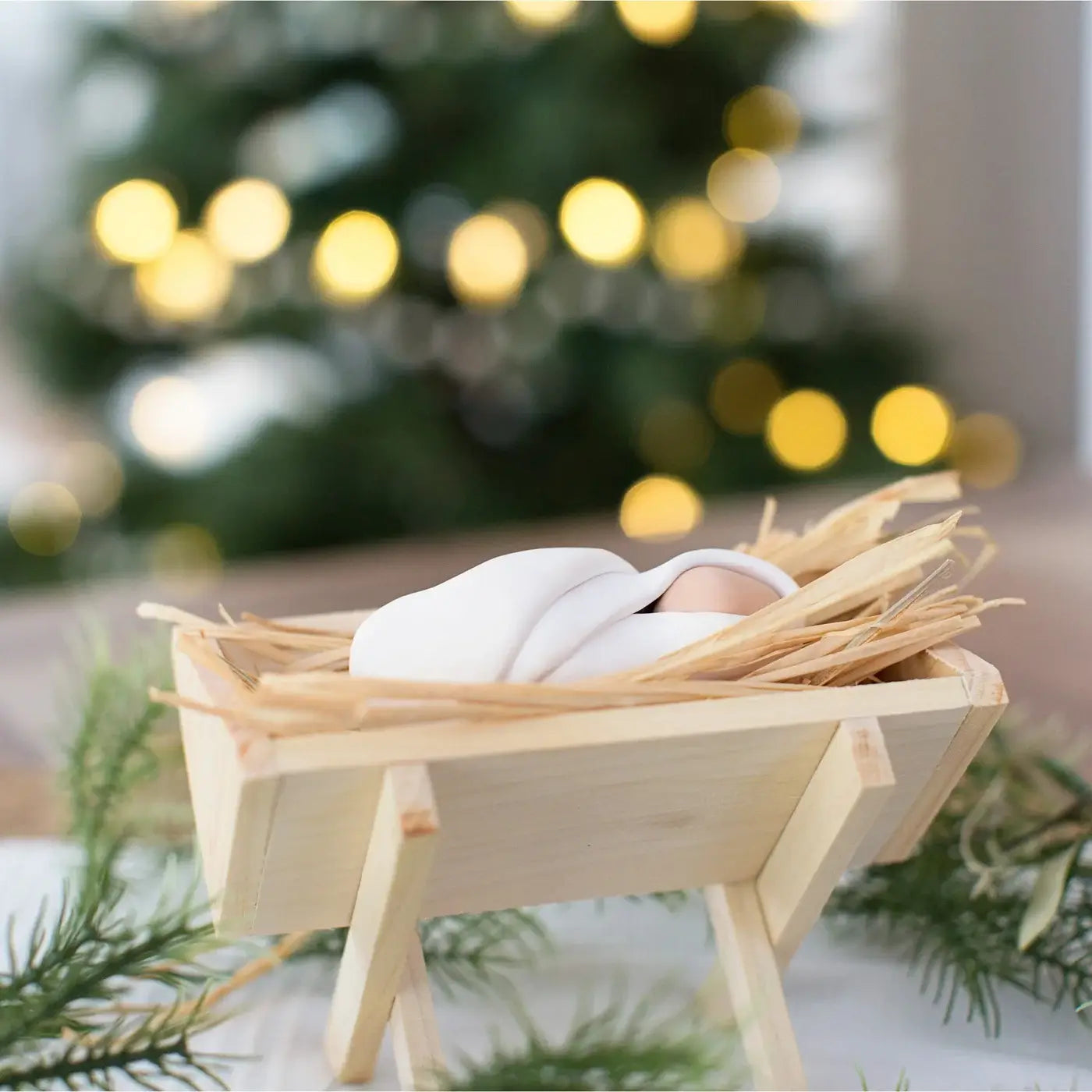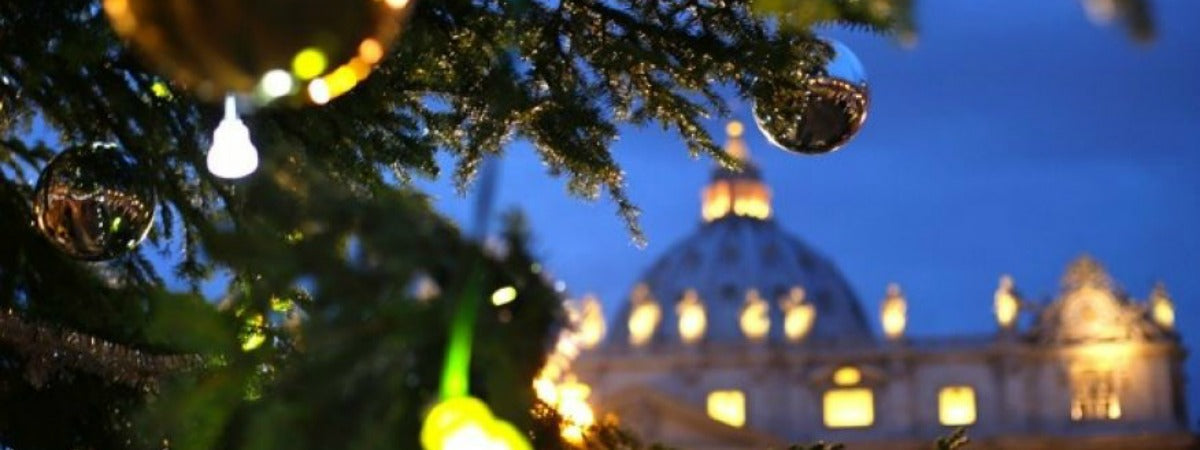What does December 26th mean to you?
For most people it means that Christmas is over. But for the Catholic Church, it means the celebration has just begun.
Many of us Catholics, however, are not aware of this. Our rhythm of celebrating Christmas is very much along the lines of the secular celebration. We put a massive amount of effort into preparing for December 25th...then, the very next day, we feel a bit blue.
“It’s over,” we think. We take down our Christmas lights, drag the tree out onto the curb, and return to our everyday lives.
Don’t! Stop right there.
The carols, the feasting, the lights, the joy, have only just commenced. We are about to rejoice in a long celebration of the birth of Christ, the Messiah.
There is a reason why Christmas is called a season. It does not last for a single day. We have been preparing for it for four weeks, and the Church couldn't possibly start and end its celebration of Christ's birth in one day. After Easter, Christmas is the most important liturgical feast in the Church calendar. Why? Because Christmas is what made Easter possible. Without Our Lord’s incarnation and birth, our redemption would not have been brought to completion, and there would be no hope for us in our fallen state.
So first, we celebrate the octave of Christmas. (The word “octave” refers to the number 8.) This means that there are eight official solemn days of rejoicing. In the language of the Church, the word “solemn” does not mean being grim, serious, or morose.
According to a simple definition: “In the Catholic Church year, a solemnity is the highest ranking holy day possible in the Church calendar…” These are days that are emphasized by particular joy, lavishness, pomp, and glory.
This might be harder to recognize in the life of lay people, but it’s unspeakably obvious in the religious life, where the Divine Office (the prayer known as the Liturgy of the Hours) practically shouts out Hallelujah! During the octave of Christmas, the office that is prayed each day—for eight straight days—is more or less the same office: the one for Christmas day.
Think about what that means: it means that we are celebrating each day, for eight days, as though each of them were Christmas day itself.
The Church is so happy that she simply revels in the joy!
“Joy to the world, the Lord is come / Let earth receive her King!”
While the reality of the Christmas octave may be a new concept for many of us, who isn't familiar with the "12 Days of Christmas"? These 12 days refer to the Christmas octave as well as the four subsequent days which take us to the feast of Epiphany.
But there’s more. On the traditional liturgical calendar, the Christmas season (also known as Christmastide) lasts 40 days. It begins with the vigil Mass said on Christmas Eve, and ends on February 2nd, Candlemas, which is the day on which we celebrate the feast of Jesus' presentation in the temple.

Christmas at the Shrine of the Most Blessed Sacrament, Hanceville, AL
The Christmas season is also full of incredible feast days. There are many ways to celebrate it as a Catholic should. Here’s a calendar of what you can look forward to, followed by some ideas on how to celebrate it with your family:
The Season of Christmas
Tell us, shepherds, what have you seen? Who has appeared on earth?
We have seen a newborn infant and a choir of angels praising the Lord, alleluia.
— Antiphon for Christmas Morning
Christmas Octave
December 26th – Feast of St. Stephen, Deacon and First Martyr
December 27th – Feast of the St. John the Evangelist
December 28th – Feast of the Holy Innocents
December 29th – Feast of St. Thomas Becket, Archbishop and Martyr
December 30th – Feast of the Holy Family
December 31st – Feast of St. Sylvester I, Pope
January 1st – Solemnity of Mary, Mother of God (Holy Day of Obligation)
January 2nd – Feast of Saints Basil the Great and Gregory Nazianzen, Bishops and Doctors of the Church
January 3rd – Feast of the Holy Name of Jesus
January 4th – Feast of St. Elizabeth Ann Seton
January 5th – Feast of St. John Neumann
January 6th – Solemnity of the Epiphany (12th Day of Christmas)
Christmas Season
January 7th – Feast of St. Raymond of Penafort
January 8th to 12th – Christmas Weekdays
January 9th – Feast of the Baptism of the Lord – End of Christmas season on the new calendar
February 2nd – Candlemas (Presentation of the Child Jesus) – End of Christmas season on the old calendar
Ideas for Celebrating Christmastide
Monks, priests, and nuns have the privilege of being able to attend daily Mass. This means that they experience the Christmas season in a very special way, partaking in all the beauty of the liturgy.
But most of us have the responsibilities of life in the world. We have jobs to return to; kids to care for and bring back to school. We have family members in need.
However, there are some things you can do to keep the reality of Christ’s birth present for your family during Christmastide. Keep in mind: many of us are overwhelmed just trying to accomplish daily responsibilities, so don’t try to do all of the suggestions below. Perhaps choose one or two things to do, and no more.
1.
Keep your nativity scenes on display. Don't take down your tree. Keep your Christmas lights on each day as the day ends and the sky darkens. Light candles near your manger scene, perhaps while the family eats dinner.
2.
Pray the Litany to the Child Jesus during the Octave, or even throughout the entire season. If it's difficult to gather family members together for this, you could pray the litany privately before retiring for the night, or when you get up in the morning. This keeps fresh in our minds and hearts the joy of the Christ Child.
3.
Take note of the various saints' feast days that are celebrated during the Christmas season. If you don't have a book that contains brief biographies on various saints, you can become familiar with their stories through the Morning Offering daily devotional email. Ask them for their intercession. The saints are eager to offer petitions on our behalf!
4.
Consider hosting Christmas parties AFTER Christmas day. Much of the rush and anxiety is over, people are no longer attending office/family/friends' parties, and there is more down time. This opens spots on people's calendars (and reminds us that Christmas is not over!)
5.
Host an Epiphany Party. My own mother has begun this tradition. The Feast of Epiphany celebrates the visit of the Magi and their gifts to the Christ Child. This party can feature candlelight, wonderful food, singing Christmas carols and hymns together, and quality time with people who are a blessing in our lives. According to my family's personal delights, my mom liked to invite guests who would enjoy a literary bent: each of us might read a poem, a fictional excerpt, or a portion of Sacred Scripture, each of these readings having a Christmas theme. When possible, she also invites friends and family who play instruments, so that there can be accompaniment with the caroling. One year it was actually very cold in Jacksonville, Florida, and we had our fireplace lit for the guests to enjoy. There are so many things you can do that will fit your hosting preferences and personal tastes!
6.
If you have some days off from work, you could go to daily Mass or to Adoration. If you have the chance to do something active, social, or busy, you might consider graciously declining once or twice, and take time to rest in the peace of Christ instead. In our world of constant distractions, this might take some will power: we might have to force ourselves to sit and be still. And yet keeping company with the Christ Child in our hearts is the gift that He desires from us.
If you want to live a Catholic life that is richer and more deeply liturgical, you'll want to sign up for this series: Catholic at Home. Don't miss it!
Do you have any other ideas? If so, please share them in the comments below! We love hearing from you.
This article has been updated and was originally published in December 2015. © The Catholic Company. All rights reserved.

